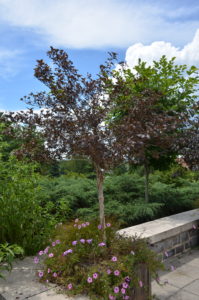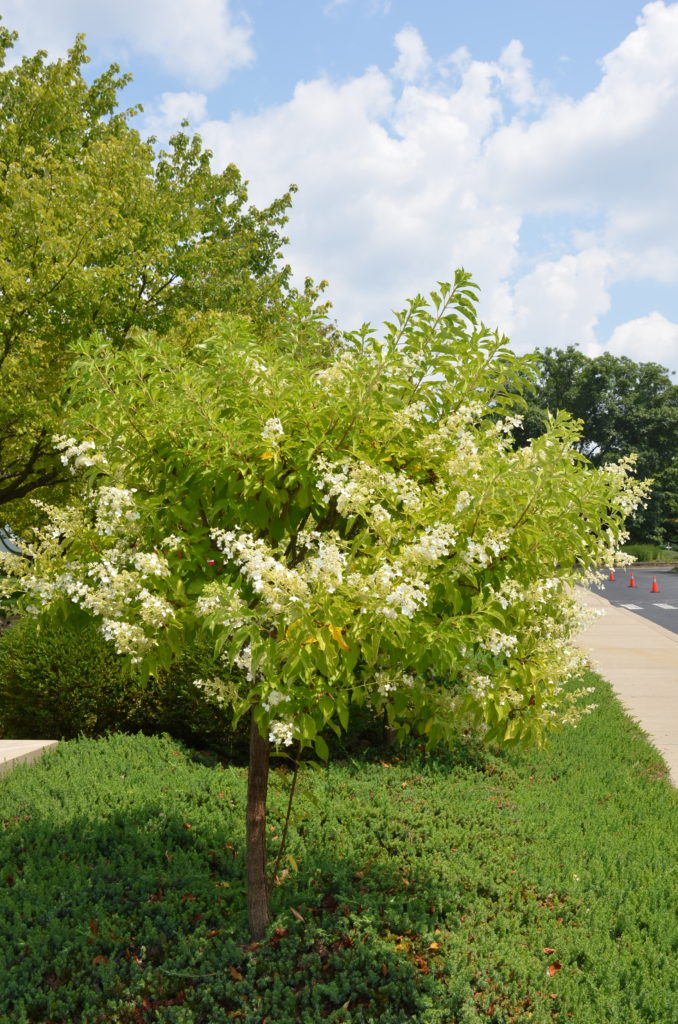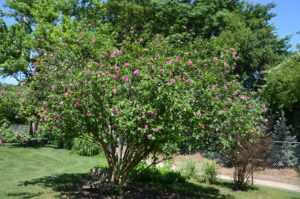With some aggressively growing shrubs, it frequently comes down to you (and your pruners) versus the plant.
Technique: a sharp pair of hand pruners along with 3-4 times annually to train a large unruly shrub into a behaved small tree.
Here is a list of 5 great shrub candidate that may become a great small tree:
Harlequin glorybower (Clerodendrum trichotomum) frequently grows as an unwieldy shrub that is 10 – 15 feet in height and spread and lacks symmetry. Through judicious pruning, you can create a beautiful 10-12 foot specimen tree that blooms in September. (USDA hardiness zones 6b-10).
Ninebark (Physocarpus opulifolius ‘Diabolo’ is a vigorous ninebark cultivar with deep burgundy maple-like foliage and an upright, spreading habit. ‘Diablo’ninebark also boasts pink-tinged, 2- inch wide white flower clusters in late May or June. (USDA hardiness zone (3-7).
Rose of Sharon (Hibiscus syriacus) is an old-fashioned summer flowering shrub which is easily converts into a small single or multi-trunk lawn tree. Flower colors range from snow white, pink, red and purples. (zones 5-8).
PG hydrangea (Hydrangea paniculata ‘Grandiflora’) is an old-fashioned shrub that bears lacy creamy white flowers starting in late July. Its dark green foliage is highly disease and insect resistant. (zones 3-9).
Shoal’s Creek chaste tree (Vitex agnus-castus ‘Shoal Creek’) is a southern favorite that blooms reliably from late June into August. Many cultivars are available; mid-size 12 foot ‘Shoal Creek’ has proven landscape reliability. (Zones 6-9).
Some basic tips: All 5 plants perform well in average well-drained acidic soils and in full to partial sun. All bloom best in full sun. Major pruning should be done in late winter after the severity of the winter weather has been evaluated. Secondary cuts, including root suckers, can be performed in any season to develop and maintain its tree form. Trees may also be maintained in large containers.




 Posted in
Posted in 
